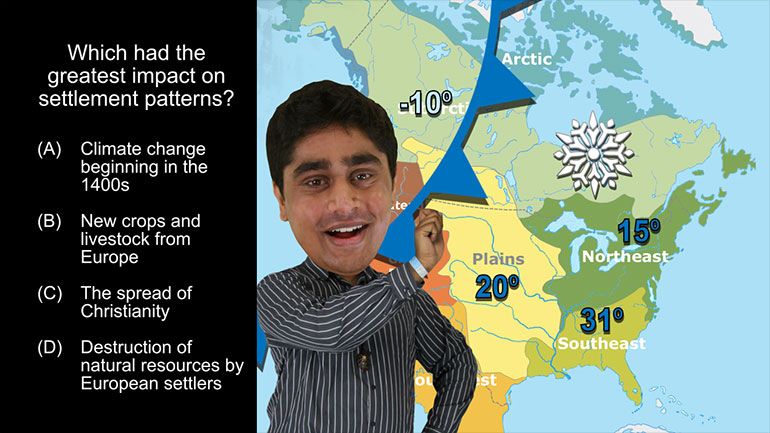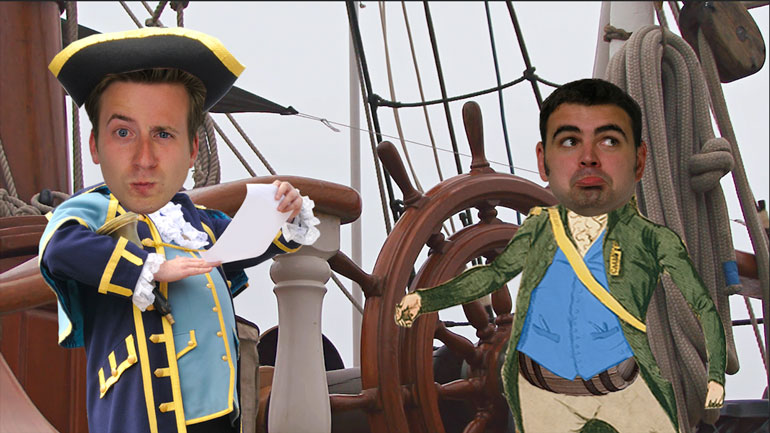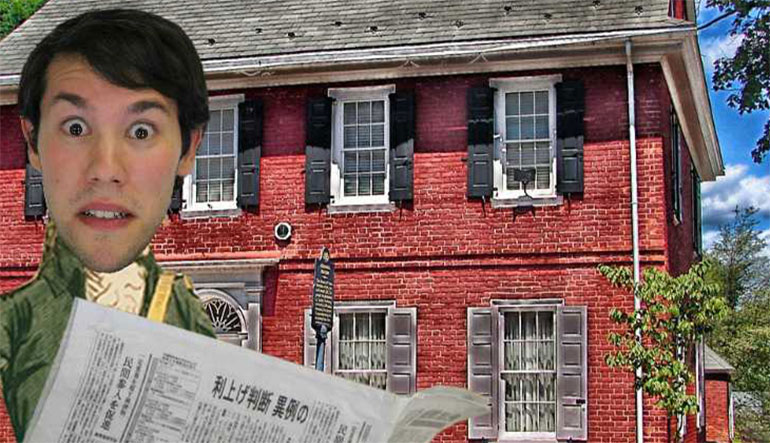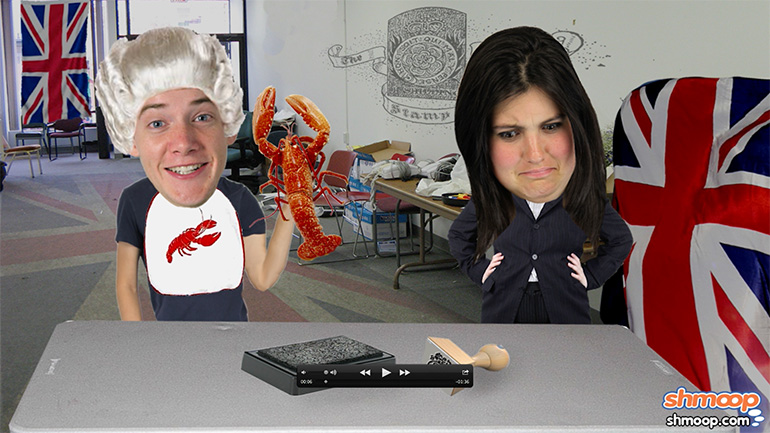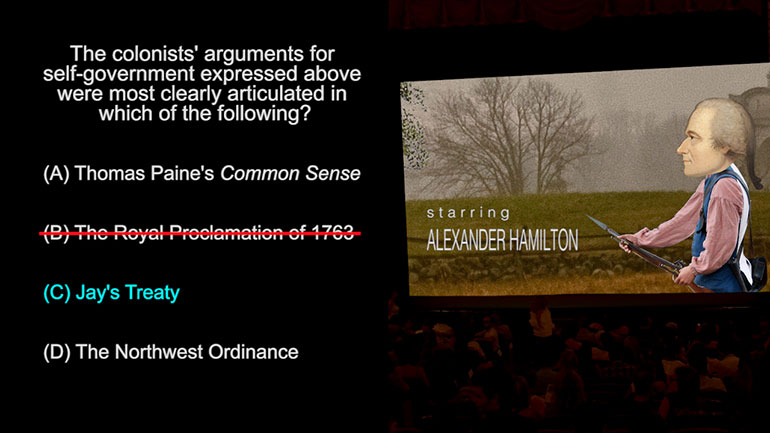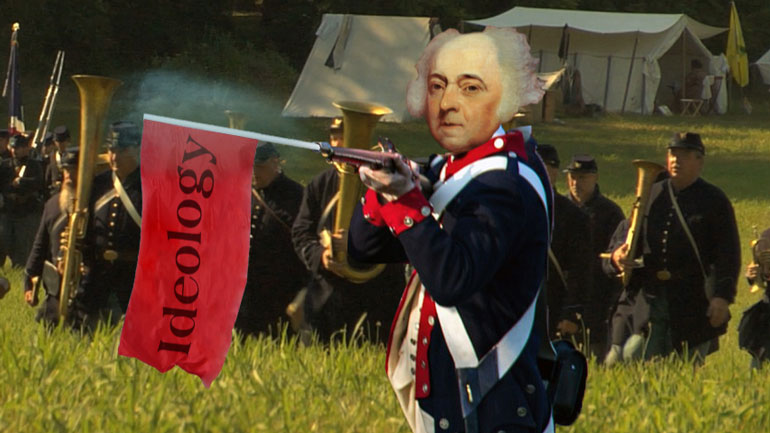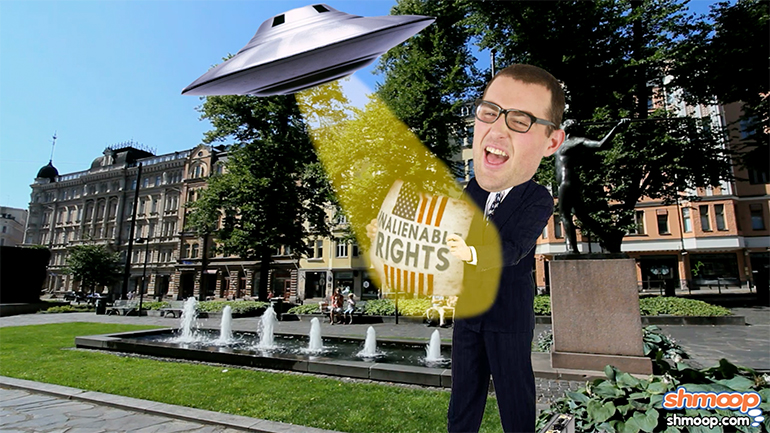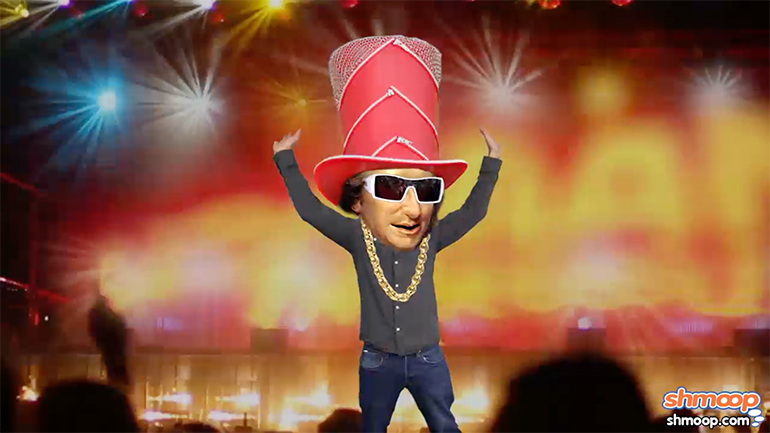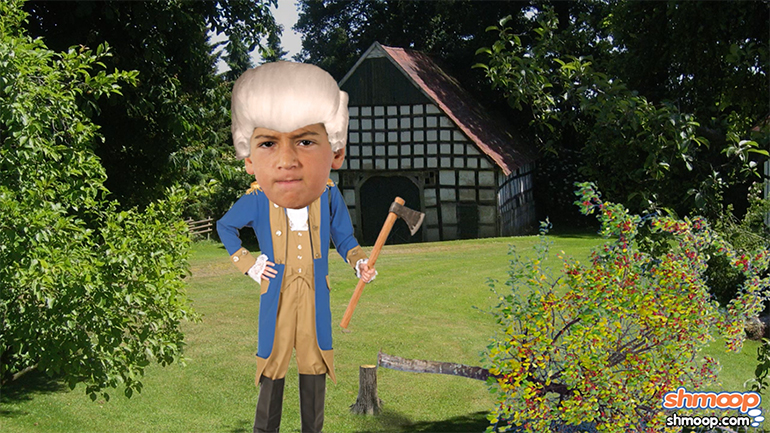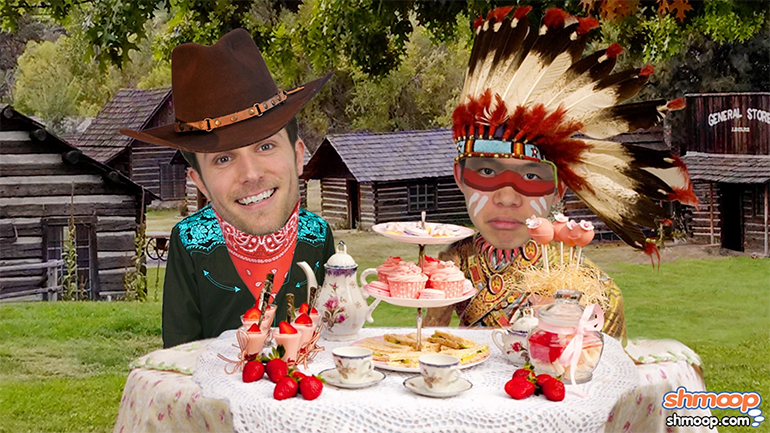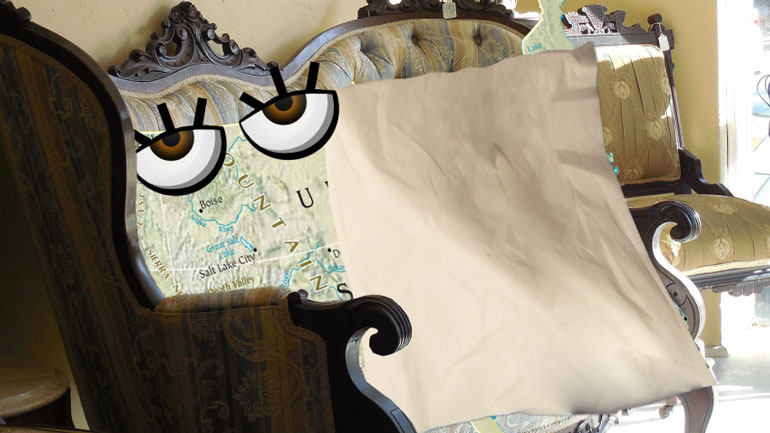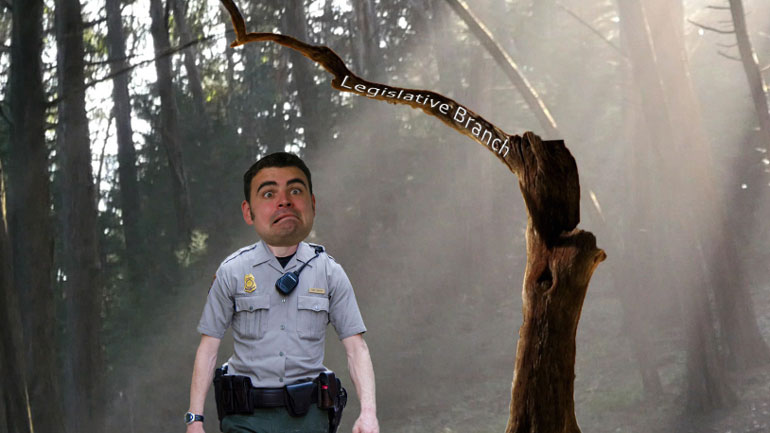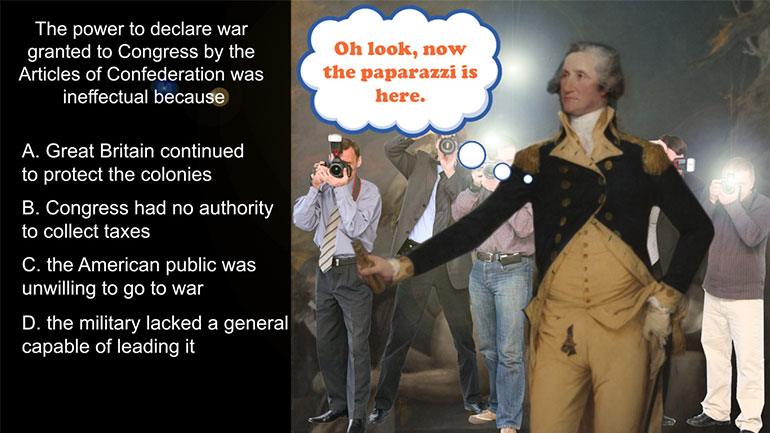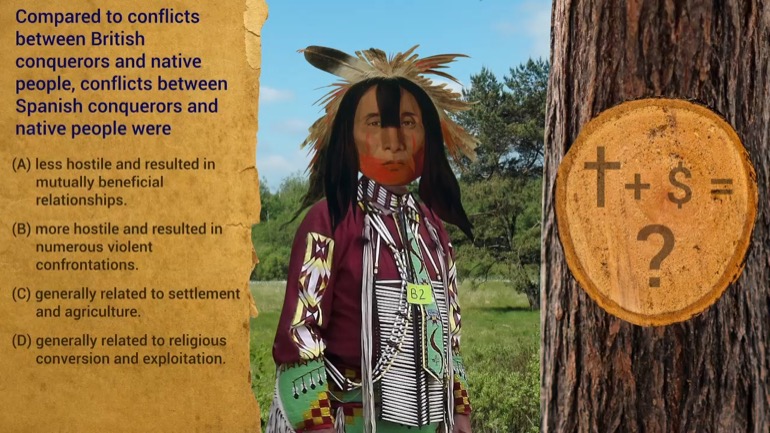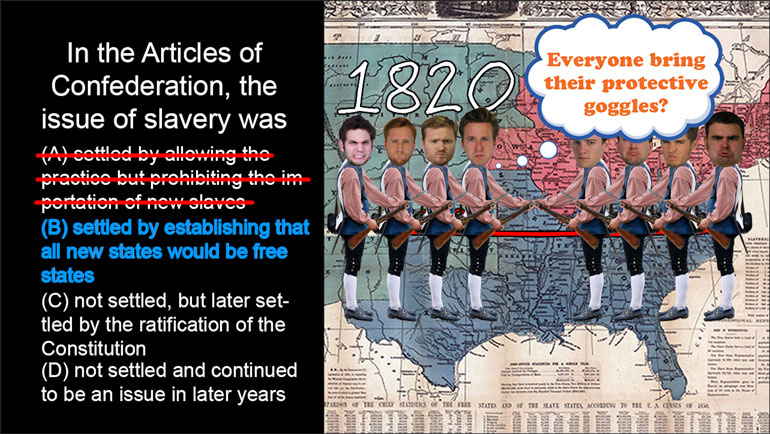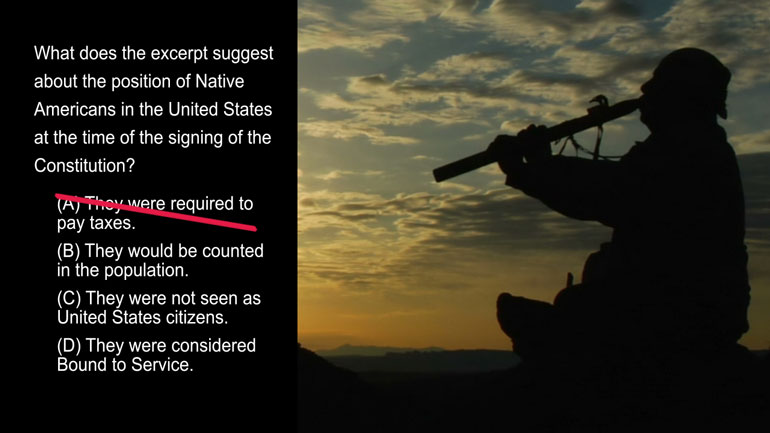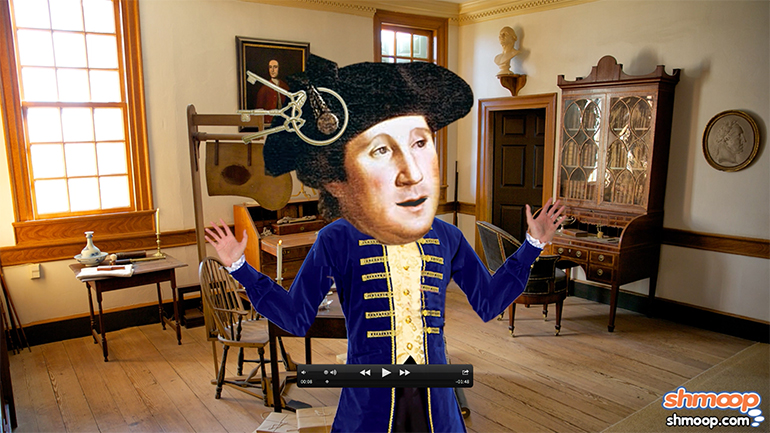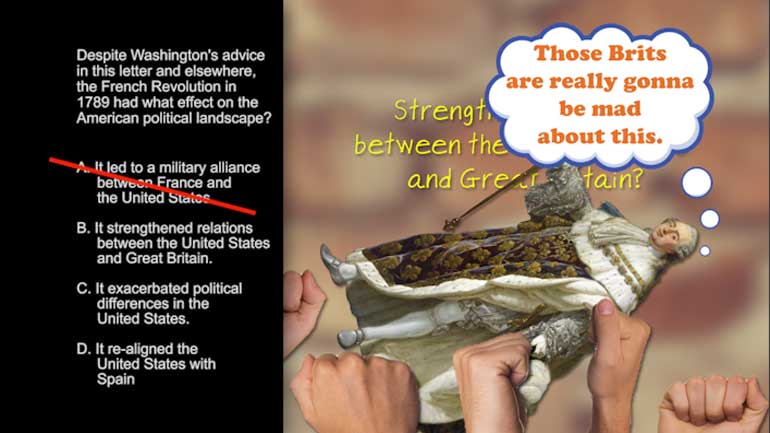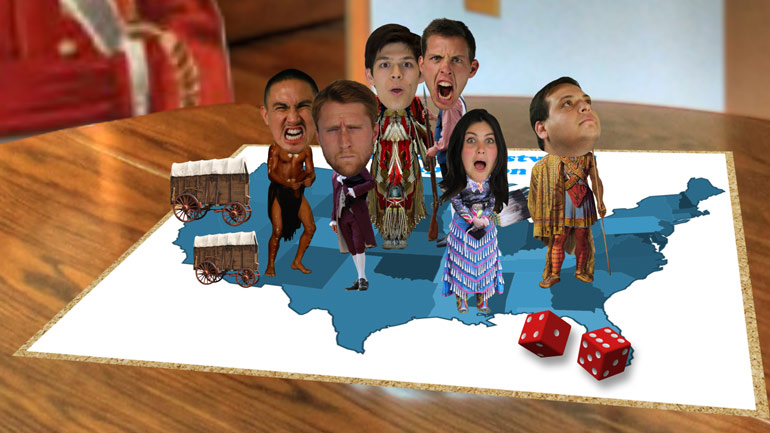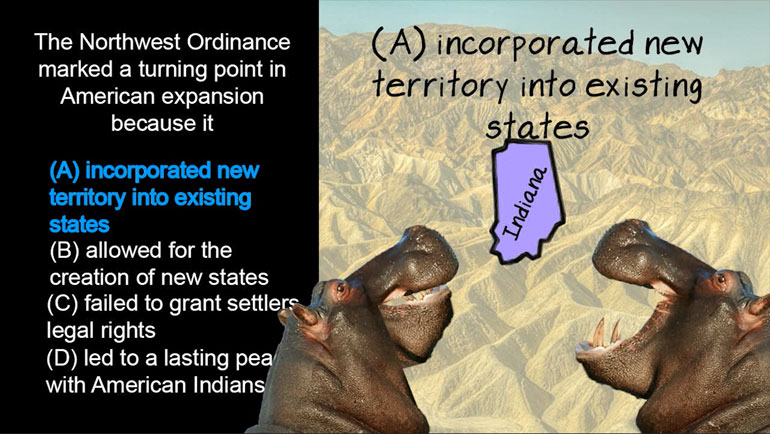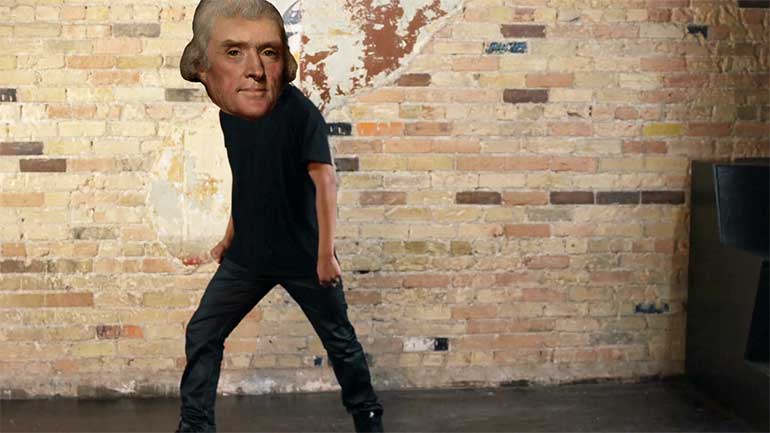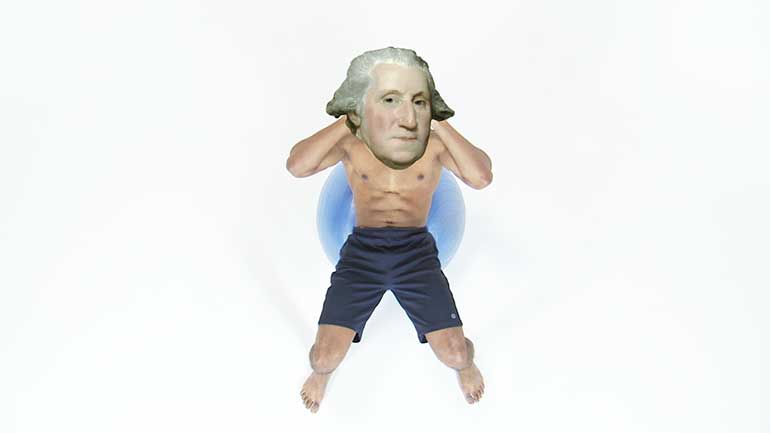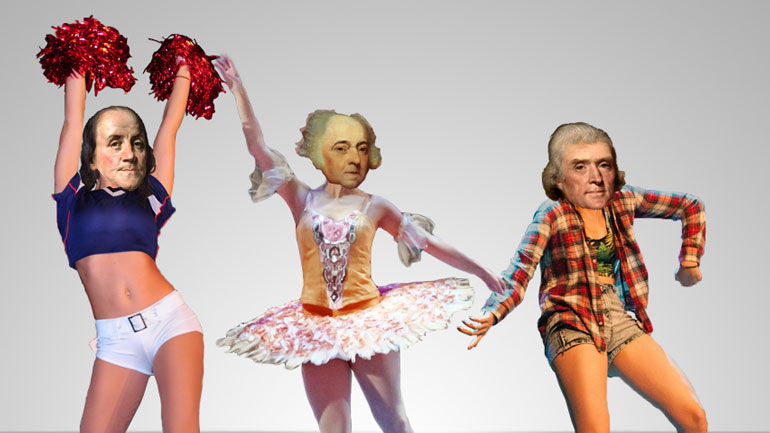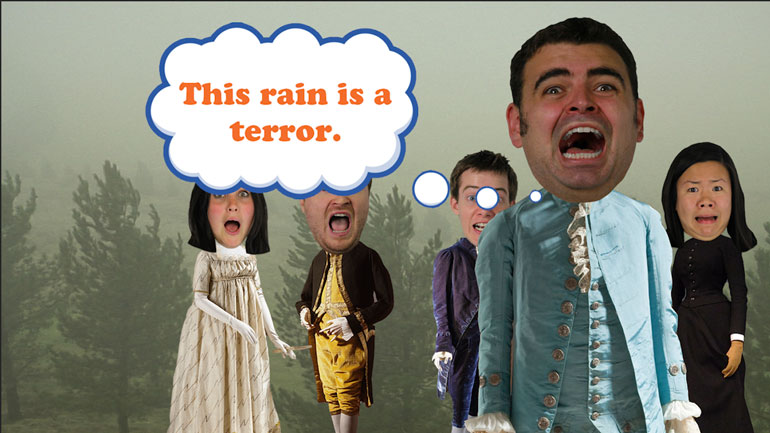ShmoopTube
Where Monty Python meets your 10th grade teacher.
Search Thousands of Shmoop Videos
Period 3: 1754 to 1800 Videos 35 videos
AP U.S. History Exam 2.1. Which of the following had the greatest impact on the settlement patterns shown on the map?
AP U.S. History Exam 2.9. What led to the corruption and increased taxes mentioned in the excerpt?
AP U.S. History Exam 1.10. What was the major concern of colonists who opposed the provisions listed in the excerpt?
AP U.S. History Exam 1.11 186 Views
Share It!
Description:
AP U.S. History Exam 1.11. Which of the following quotes from the Declaration of Independence most accurately reflects the main idea of the excerpt?
Transcript
- 00:00
[ musical flourish ]
- 00:02
And here's your Shmoop du jour, brought to you by the Declaration of Independence,
- 00:06
a teenager's last-ditch effort to becoming her own person.
- 00:10
Yeah. That.
- 00:12
All right, give this excerpt a read.
Full Transcript
- 00:14
[ mumbles ]
- 00:23
All right, and the question:
- 00:25
Why are we doing all of this mumbling?
- 00:26
Second question:
- 00:28
Which of the following quotes from the Declaration of Independence
- 00:30
most accurately reflects the main idea of the excerpt?
- 00:34
All right, and here are your potential answers.
- 00:36
[ mumbles ]
- 00:41
All right. Let's see if we can parse out
- 00:44
what Mr. Paine is going for here.
- 00:46
He writes that the king has had "a long and violent
- 00:49
abuse of power" and that
- 00:51
"the good people of this country are grievously oppressed."
- 00:55
So no hard feelings against the monarchy, right there, T-Paine?
- 00:59
All right, well, let's see which answer best matches this
- 01:02
rage against the king.
- 01:04
Is the quote from the Declaration of Independence that
- 01:06
most accurately reflects this sentiment B -
- 01:09
"...that they are endowed by their Creator with certain
- 01:12
unalienable Rights."?
- 01:14
Actually, many scholars think this guarantee of life,
- 01:16
liberty, and the pursuit of happiness was inspired
- 01:19
by John Locke, not Thomas Paine.
- 01:22
Same goes for that whole idea about deriving power
- 01:25
"from the consent of the governed."
- 01:27
So that bumps out B and D.
- 01:29
What about C?
- 01:30
"... a decent respect to the opinions of mankind
- 01:34
requires that they should declare the causes which impel them to the separation."
- 01:40
Huh. Well that's just saying that if you're gonna declare independence,
- 01:43
you should probably have some good reasons
- 01:45
and then explain them to everybody else.
- 01:47
So it's not C, either.
- 01:49
Which means that the quote that most accurately reflects
- 01:52
the main idea of the excerpt is A -
- 01:54
"That whenever any Form of Government becomes destructive
- 01:57
of these ends, it is the Right of the People to alter or to abolish it."
- 02:02
In the excerpt, Paine says the King's abuses of power
- 02:05
gave the colonists "an undoubted privilege... to reject it."
- 02:09
In the Declaration of Independence, this was rephrased as the
- 02:12
people's right to alter or abolish it.
- 02:15
So the correct answer is A.
- 02:17
And it's clear that Thomas sure had a way of
- 02:20
bringing the "Paine" to the British government.
- 02:22
[ mumbling with British accent ]
- 02:25
[ animal groaning ]
Related Videos
Ever heard of a "living document"? They eat and breathe just like the rest of us! They even walk around on their own two legs. Okay, fine—maybe t...
If the Puritans had gotten their way, religion would play a much larger role in lawmaking these days. Want to know more? Watch the video for all th...
What happened between the creation of the Articles of Confederation and the ratification of the current U.S. Constitution? This video analyzes the...
The Modernists thought the world had a lot of problems, and they were intent on fixing them—or at least talking about fixing them. Unfortunately,...
This video explains Federalism and the quest for a fair balance between state and national power. It covers the progression and compromises of Fede...
